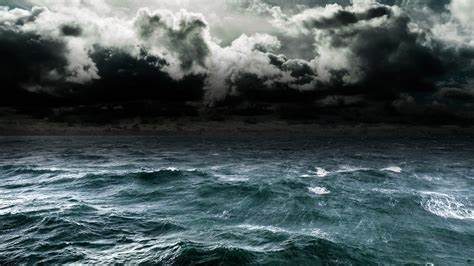The Atlantic Meridional Overturning Circulation (AMOC) is a system of ocean currents that carries warm water from the tropics northward into the North Atlantic. This warm water cools and sinks, forming deep water that then flows southward. The AMOC is part of the global thermohaline circulation, which is a pattern of water flow through the world’s oceans driven by differences in temperature and salt content. This circulation helps regulate the Earth’s climate by distributing heat and energy around the globe. Climate change is expected to weaken the AMOC, which could have significant impacts on global climate patterns, including sea level rise, altered temperatures in certain regions, changes in marine ecosystems, and non-linear changes in sea-level rise in the North Atlantic Ocean. There are concerns that the AMOC may be slowing down, and its potential collapse could have far-reaching consequences for weather and climate patterns, particularly in Europe and Africa.
- The system is being eroded by the faster-than-expected melt-off of Greenland’s glaciers and Arctic ice sheets.
- The influx of freshwater from melting ice obstructs the sinking of saltier, warmer water from the south.
- AMOC has already declined 15% since 1950 and is currently in its weakest state in over a millennium.
- Researchers have developed an early warning indicator for AMOC breakdown.
- Simulating changes over 2,000 years, they found that a slow decline can lead to a sudden collapse in less than 100 years.
- This collapse would be unprecedented in the past 10,000 years.
The Atlantic Meridional Overturning Circulation (AMOC) impacts the Gulf Stream by contributing to its driving force. The AMOC circulates water from the North Atlantic to the South Atlantic and back, playing a crucial role in regulating global climate and carrying warmth to various parts of the globe. While the Gulf Stream is a powerful warm ocean current that flows from the Gulf of Mexico up the East Coast of the United States, the AMOC and the Gulf Stream are interconnected components of the North Atlantic Ocean circulation.
If the AMOC were to weaken or collapse, it could create a sizable ‘cold blob’ in the North Atlantic, destabilizing the climate in North America, northern Europe, and possibly other parts of the world.
Impact of Weak AMOC
- Cold and Stronger Storms: If the AMOC weakens substantially, it could bring intense cold and stronger storms to Europe.
- Sea Level Rise: The weakening AMOC could raise sea levels across the northeast coast of North America due to altered ocean circulation patterns.
- Nutrient Disruption: The flow of vital nutrients needed by phytoplankton (marine algae) in the North Atlantic could be disrupted. Phytoplankton form the foundation of the aquatic food web.
The Gulf Stream, a powerful ocean current, significantly influences global weather patterns. It transports warm water from the Gulf of Mexico into the North Atlantic, impacting the climate of the east coast of the United States and western European countries. The warm waters it carries help keep Europe warm by providing warmth from the equator to northern latitudes, affecting temperatures and weather patterns.
For instance, the Gulf Stream influences the climate of the east coast of Florida, keeping temperatures warmer in the winter and cooler in the summer than other southeastern states. Its extension toward Europe also warms western European countries, contributing to their milder climate.
The Gulf Stream and the Jet Stream are two distinct phenomena that play important roles in shaping weather patterns. We saw about the Guld Stream above, the Jet Stream on the other hand, tis a fast, narrow current of air flowing from west to east in the upper atmosphere. While they are different in nature, they can influence each other indirectly.
The Gulf Stream constantly brings warmer water towards western Europe, affecting air temperatures over the UK and Ireland.
The Jet Stream, being an atmospheric phenomenon, can be influenced by the temperature contrast created by the Gulf Stream. The Gulf Stream is an oceanic current that influences climate, while the Jet Stream is an atmospheric current that affects weather patterns.
With this information, it is clear that AMOC and related currents are going to have a say very soon in our lives and bring the much-needed change in production, consumption and waste management.
Citations:
[1] What’s the Difference Between Gulf Stream and Jet Stream? – American Oceans https://www.americanoceans.org/facts/gulf-stream-vs-jet-stream/
[2] Gulf Stream & Jet Stream https://forums.civfanatics.com/threads/gulf-stream-jet-stream.131298/
[3] What is the jet stream? https://www.climate.gov/news-features/blogs/enso/what-jet-stream
[4] The Gulf Stream and the Jet Stream https://prezi.com/05-pciw04e2t/the-gulf-stream-and-the-jet-stream/
[5] Why does the jet stream affect our weather? https://www.newscientist.com/lastword/mg24232311-600-why-does-the-jet-stream-affect-our-weather/
[6] What is the North Atlantic Gulf Stream, and why is it so important for Weather in the United States and Europe? – Learnweather.com https://learnweather.com/global-weather/what-is-the-gulf-stream-weather-influence-usa-europe-fa/
[7] What Is the Gulf Stream? https://scijinks.gov/gulf-stream/
[8] Gulf Stream System Weakening https://www.climatesignals.org/climate-signals/gulf-stream-system-weakening
[9] Currents: NOAA’s National Ocean Service Education https://oceanservice.noaa.gov/education/tutorial_currents/media/supp_cur04d.html
[10] Climate change threatens the North Atlantic’s currents, ecosystems and stability (analysis) https://news.mongabay.com/2023/11/climate-change-threatens-the-north-atlantics-currents-ecosystems-and-stability-commentary/
[11] Gulf Stream could collapse as early as 2025, study suggests https://www.theguardian.com/environment/2023/jul/25/gulf-stream-could-collapse-as-early-as-2025-study-suggests
[12] Will the Gulf Stream really shut down? https://www.whoi.edu/oceanus/feature/will-the-gulf-stream-really-shut-down/
[13] Melting ice could create chaos in US weather and quickly overwhelm oceans, studies warn https://www.usatoday.com/story/news/nation/2024/02/09/amoc-current-from-day-after-tomorrow-on-path-to-collapse/72508702007/




